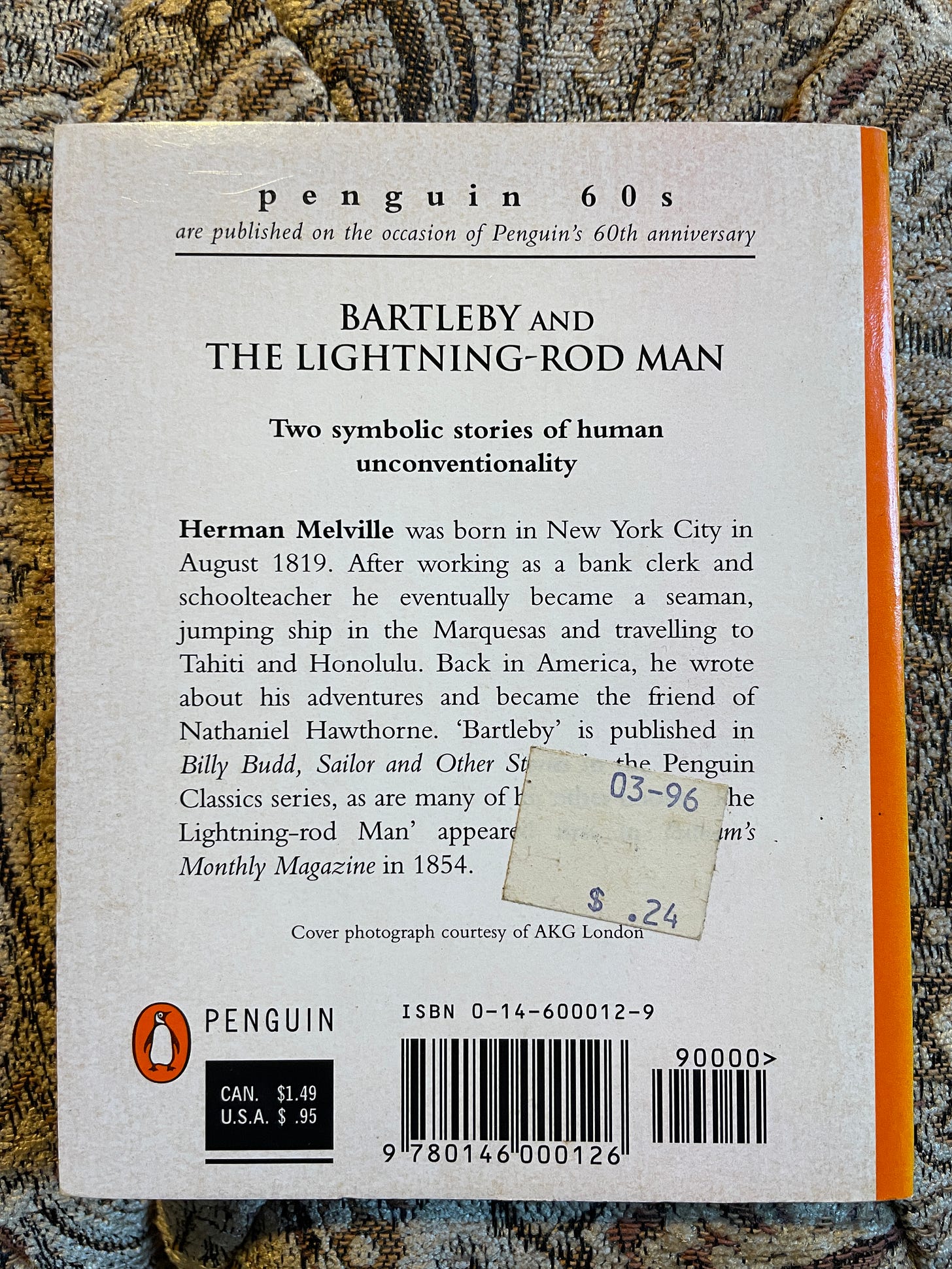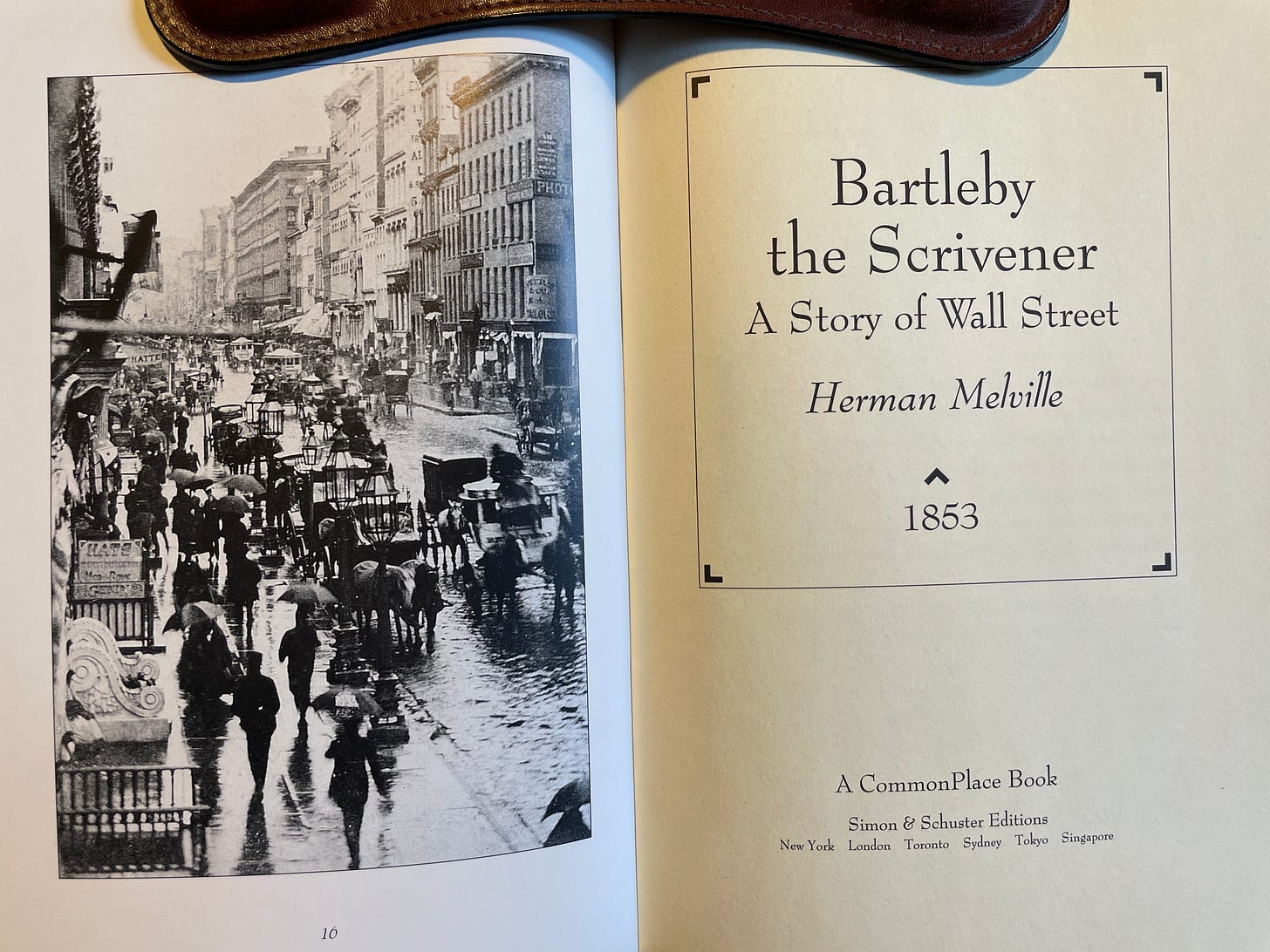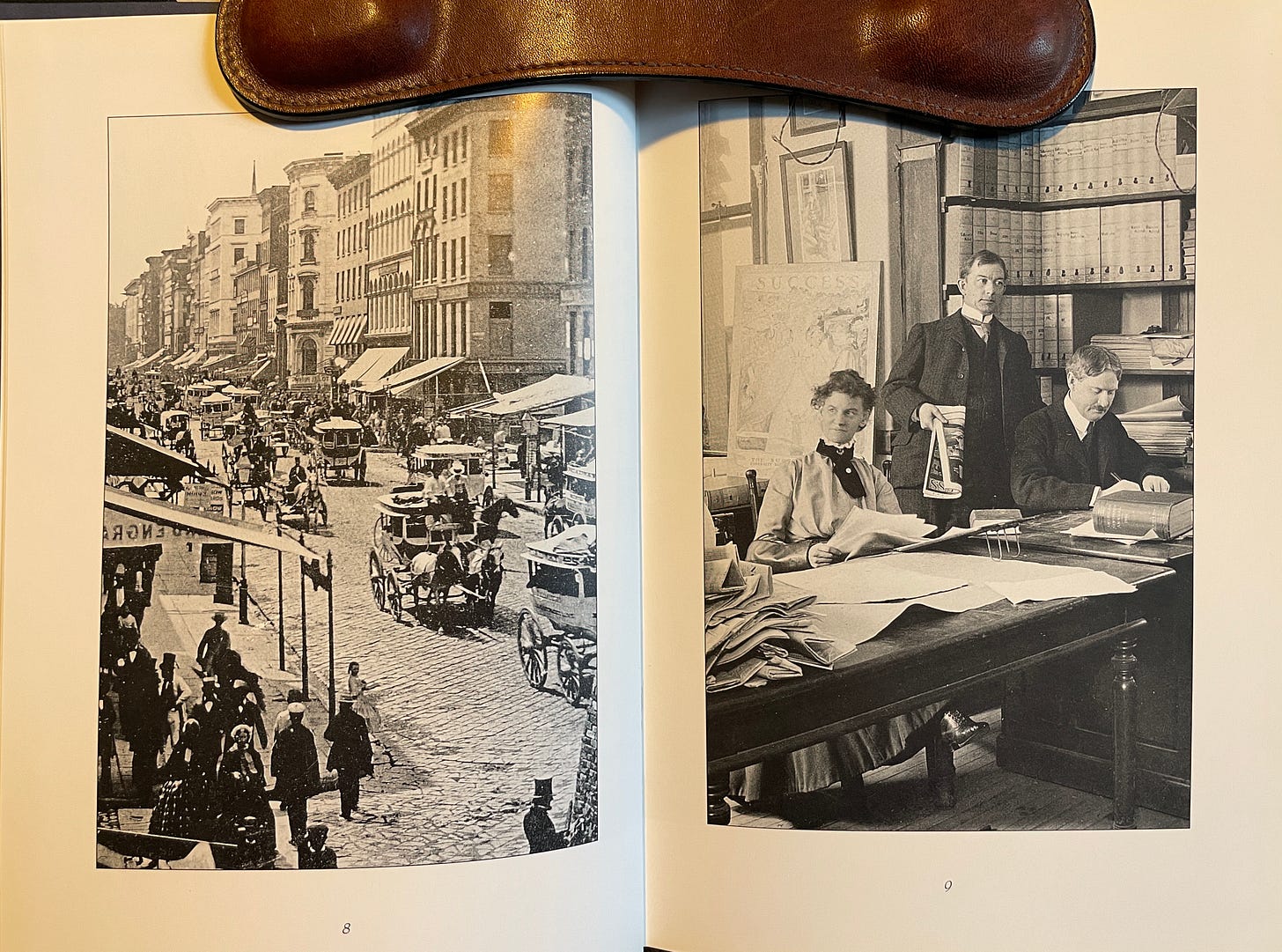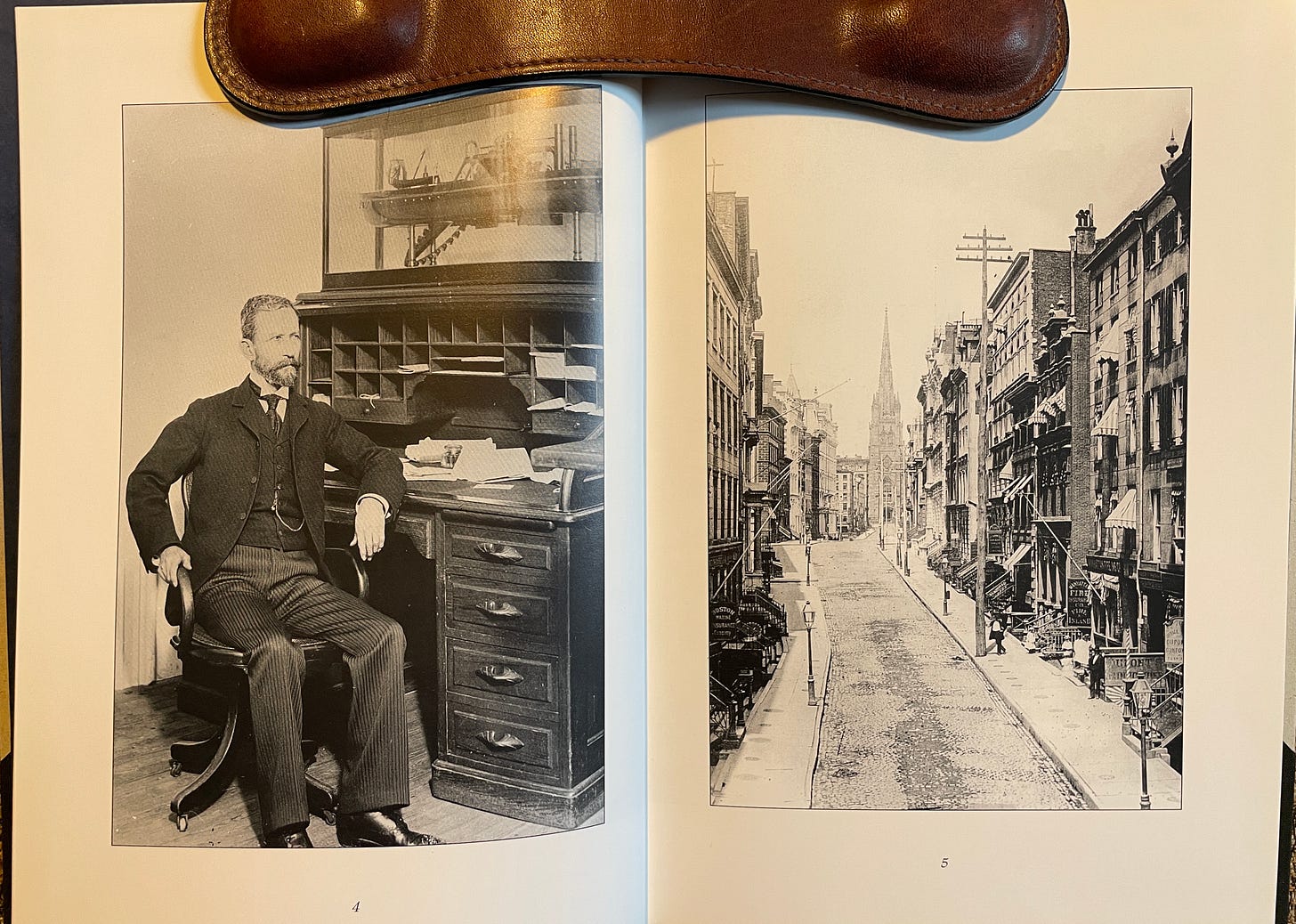I would prefer not (to read Moby Dick).
That's okay! You can start with another Melville masterpiece.
The first book I read by Herman Melville was the only book of his that I’d heard of: Moby Dick.
It is very, very long. I happened to read it in a graduate school seminar, which is a wonderful motivator, and I loved it. (In an upcoming Book Glory post I’ll explore the fascinating history behind how a 1930 edition took Moby Dick from neglected masterpiece to American classic.)
But perhaps you would prefer not to read a giant tome. Fear not! There’s another work by Melville that, in it’s own way, rivals Moby Dick, but clocks in at under 60 short pages.
I know the page count without checking, because one of the editions I own happens to be in the Penguin 60s series. Check out dapper young Melville:
Penguin 60s series were published in 1995, to celebrate the 60th anniversary of the venerable publishing house. All were around 60 pages long — and you could buy them individually or in lovely box sets, with either orange or black spines:
For me, the magic of my Penguin 60 is how it transports me to a different time and place. On the back of Bartleby, you can time travel thirty years via just the price. Originally 95 cents, this one apparently sold for 24 CENTS!!!
I bought it used for $4.50, a markup of 1800%.
If you haven’t read it, I won’t include any spoilers, but the central premise is simple: The first-person narrator owns a business that specializes in copying legal documents. He hires the titular Bartleby, who, at first, seems like an exemplary employee. But at a certain point, something bizarre happens. He begins to resist all requests from his employer, declining them all with a simple, iconic line:
I would prefer not.
Typically Bartleby is read as a parable — about resistance, free will, and mental health. When I first read it, in my Penguin 60s edition, those were the themes I focused on. I didn’t even notice where and when the story was set. This was a folktale that transcended its context.
Only later did I realize my initial reading was influenced by choices in book design! For no apparent reason, Penguin had dramatically shortened the title of Melville’s story, and I only learned the full title when I stumbled across another, very different edition, published by Simon and Schuster in 1997 (only two years after the Penguin 60s came out).
That’s right! The full title is Bartleby the Scrivener: A Story of Wall Street.
The Simon and Schuster edition fundamentally transformed my experience of the story. The editors choose to include a suite of vintage photos from 19th century New York City. The photos precede the story, so by the time you arrive at the text, you have already been vividly immersed in the reality that Bartleby came to resist.
You can see a scrivener’s desk like the one he would have occupied, complete with inkpot and adjustable stool:
How much things have changed!
Bartleby’s relentless refrain of “I would prefer not” takes on a very different meaning when framed by these photos, and the full title. This is, according Melville, a story of Wall Street (that’s Wall Street in the last photo), as it comes into its full glory as a center for business. Charles Dow, of Dow Jones stock exchange fame, didn’t start trading stocks there until 1884.
So what was Bartleby resisting, I wondered to myself? Was it the extraordinary change sweeping through his city? Was it his participation in that change? Was it the meaninglessness of his labor as a copyist, a dehumanizing mechanical repetition that only a century later would be done by actual machines?
What started as a parable had become historical fiction, thanks to book design.
And yet! Melville’s story remains a parable for me. As I looked through the photos again for this post, it struck me that despite my distance from Bartleby and his world, the suffering he experienced was universal. We, too, resist being dehumanized. We, too, wish for the almost supernatural courage required to reject requests made of us by the forces of history and circumstance. And we also understand that courage to reject can easily become a pathological refusal to participate.
Historical fiction and parable, both — each reinforced by whichever edition of Bartleby I happen to pick up for a quick and easy dip into Melville. Because as much as I look forward to rereading Moby Dick, right now I would prefer not.
Thanks so much for joining me on this latest installment of Book Glory! And remember, if you are a paid subscriber, there’s more in this post (another Melville gem in a beautiful edition), and you also get access to the entire archive of Book Glory posts, instead of just the latest ones.
See you all next week!
Keep reading with a 7-day free trial
Subscribe to Book Glory to keep reading this post and get 7 days of free access to the full post archives.










